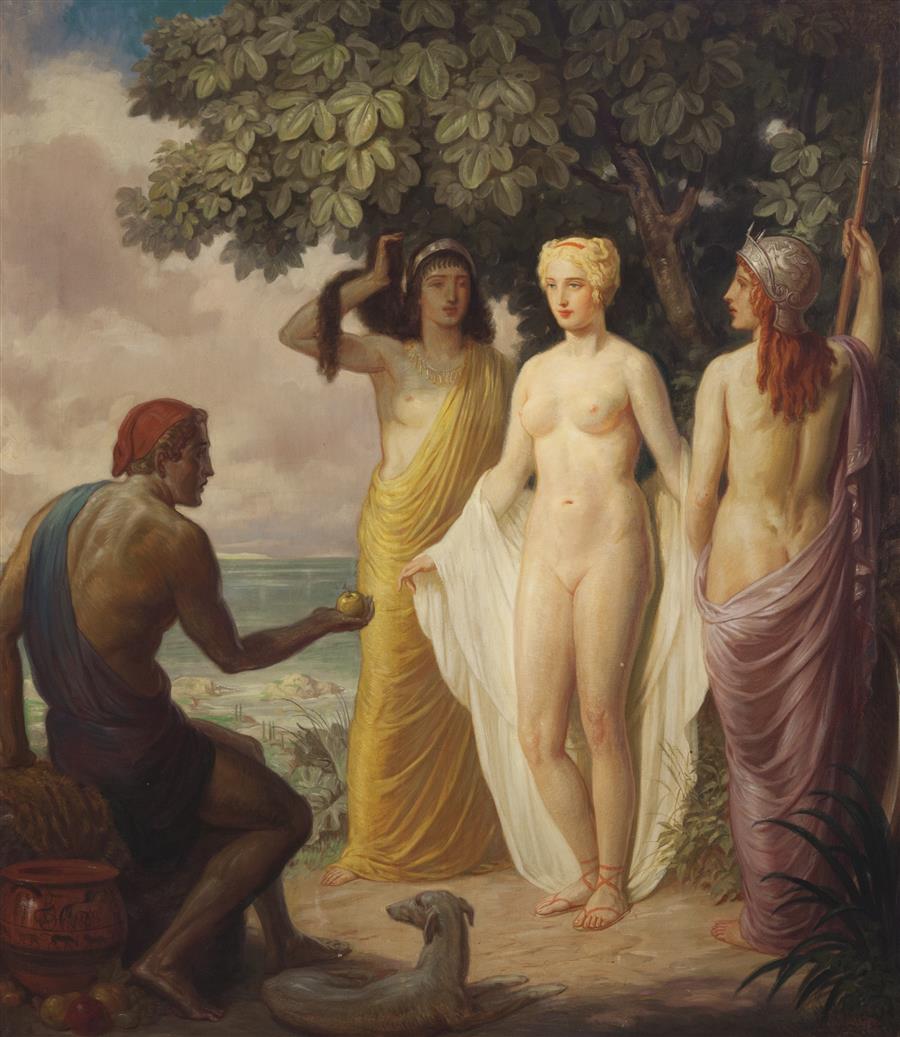“JUDGMENT OF PARIS” BY LOUIS GRELL 1937 OIL
It is recounted that Zeus held a banquet in celebration of the marriage of Peleus and Thetis (parents of Achilles). However, Eris, goddess of discord was not invited, for she would have made the party unpleasant for everyone. Angered by this snub, Eris arrived at the celebration with a golden apple from the Garden of the Hesperides, which she threw into the proceedings, upon which was the inscription “for the fairest one.”
Three goddesses claimed the apple: Hera, Athena and Aphrodite. They asked Zeus to judge which of them was fairest, and eventually he, reluctant to favour any claim himself, declared that Paris, a Trojan mortal, would judge their cases, for he had recently shown his exemplary fairness in a contest in which Ares in bull form had bested Paris’s own prize bull, and the shepherd-prince had unhesitatingly awarded the prize to the god.
Thus it happened that, with Hermes as their guide, the three candidates bathed in the spring of Ida, then confronted Paris onMount Ida in the climactic moment that is the crux of the tale. While Paris inspected them, each attempted with her powers to bribe him; Hera offered to make him king of Europe and Asia, Athena offered wisdom and skill in war, and Aphrodite, who had the Charites and the Horai to enhance her charms with flowers and song (according to a fragment of the Cypria quoted by Athenagoras of Athens), offered the world’s most beautiful woman (Euripides, Andromache, l.284, Helena l. 676). This was Helen of Sparta, wife of the Greek king Menelaus. Paris accepted Aphrodite’s gift and awarded the apple to her, receiving Helen as well as the enmity of the Greeks and especially of Hera. The Greeks’ expedition to retrieve Helen from Paris in Troy is the mythological basis of the Trojan War.


